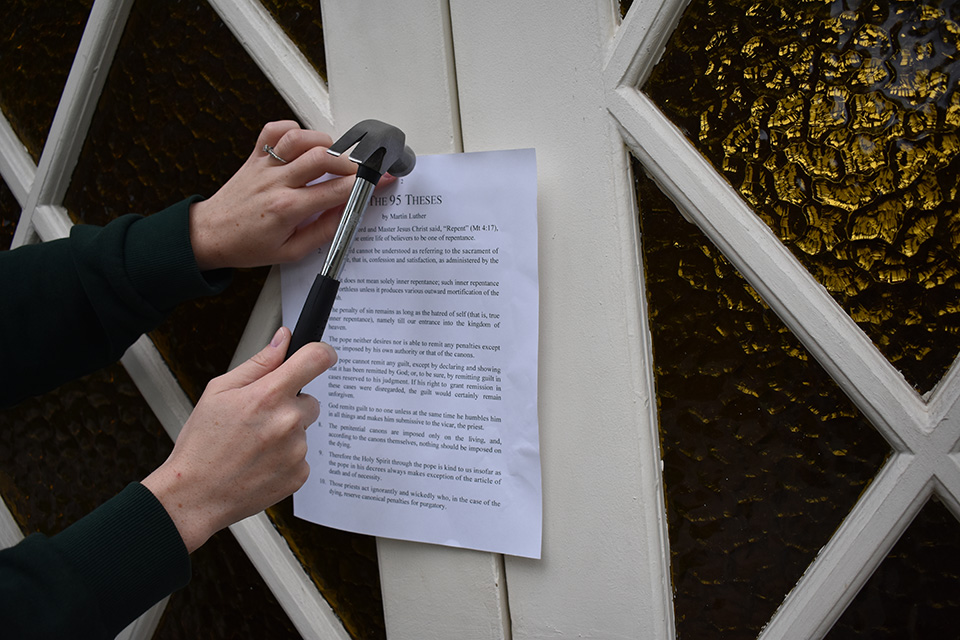I would like to think of myself as a Christian. I signed Biola’s statement of faith. I believe God inspired the New and Old Testaments. I believe in the triune God. I believe his only Son, Jesus Christ, is my savior—and the world’s—through his most perfect gift of grace on the cross. I believe that only by true faith in Christ, not any work that I do of my own power, can I come to experience salvation. I am also Catholic.
REFORMING PROTESTANTISM
But I was not always. I attended a K-12 Reformed Christian school. To celebrate the posting of Martin Luther’s 95 Theses on Oct. 31, we would perform skits and run a festival around Reformation history.
I became Catholic while at Biola, and my perspective of this historical date has changed from one of triumph to one of grief. This day represents the tension between my family and I, the loss of church friends from home, the scorn of family friends who once thought I was destined to do great things for the church. It represents the slaughter of thousands of Christians at each other’s hands, the fostering of hate amongst Christian brothers and sisters, the slander of one another from the pulpit, the classroom and the pen.
Over the past few weeks, you may have heard about celebrating the Reformation’s 500th Anniversary in class or just in general—some of it at Torrey Conference even. As a Catholic, when I hear Biolans celebrating the Reformation, I hear the nullifying of my citizenship in the kingdom, the condemnation of a church in harmony with our Doctrinal Statement, the celebration of divisions within the body of Christ.
UNIFICATION OF CATHOLIC AND PROTESTANT CHURCHES
I will be the first to say the Medieval Church needed to tidy up and stop the abuses going on at that time, including abuses with the selling of indulgences, simony, sacerdotalism and uneducated clergy, but did it warrant the separation and condemnation of brothers and sisters? There is plenty of blame to go around, but the celebration of the resulting chaos and division is tantamount to celebrating a divorce, the estrangement of siblings or the contrasting of Paul and Apollos.
As Christians, it is unequivocally unacceptable to revel in church divisions and disputes. When we look in John 17 to Christ, our savior, in his last moments, we see him praying in the garden that we may be one as he and the Father are one. Divisions in the early church caused Paul to forcefully rebuke the Corinthians and exhort the Ephesians in light of the one faith, one body and one Spirit, as seen in 1 Corinthians 1 and Ephesians 2. While the first millennium was characterized by Christian union, and the second by Christian disunion, let us hope the third will be the millennium of Christian reunion.
If we as Christians look back on 500 years of strife, it should be clear that what unites us is far more than what divides us—even in the past decade, division continues to diminish. Even Sola Fide has been reconciled with Catholics, Lutherans, the Methodists, Anglicans and some Reformed churches through the Joint Declaration on the Doctrine of Justification. In a growing secular age it is important to ask ourselves, “How can a divided church unite a divided world?” No more than square block can fill circular space. So, remember this day with grief and hope rather than triumph and gloating.







